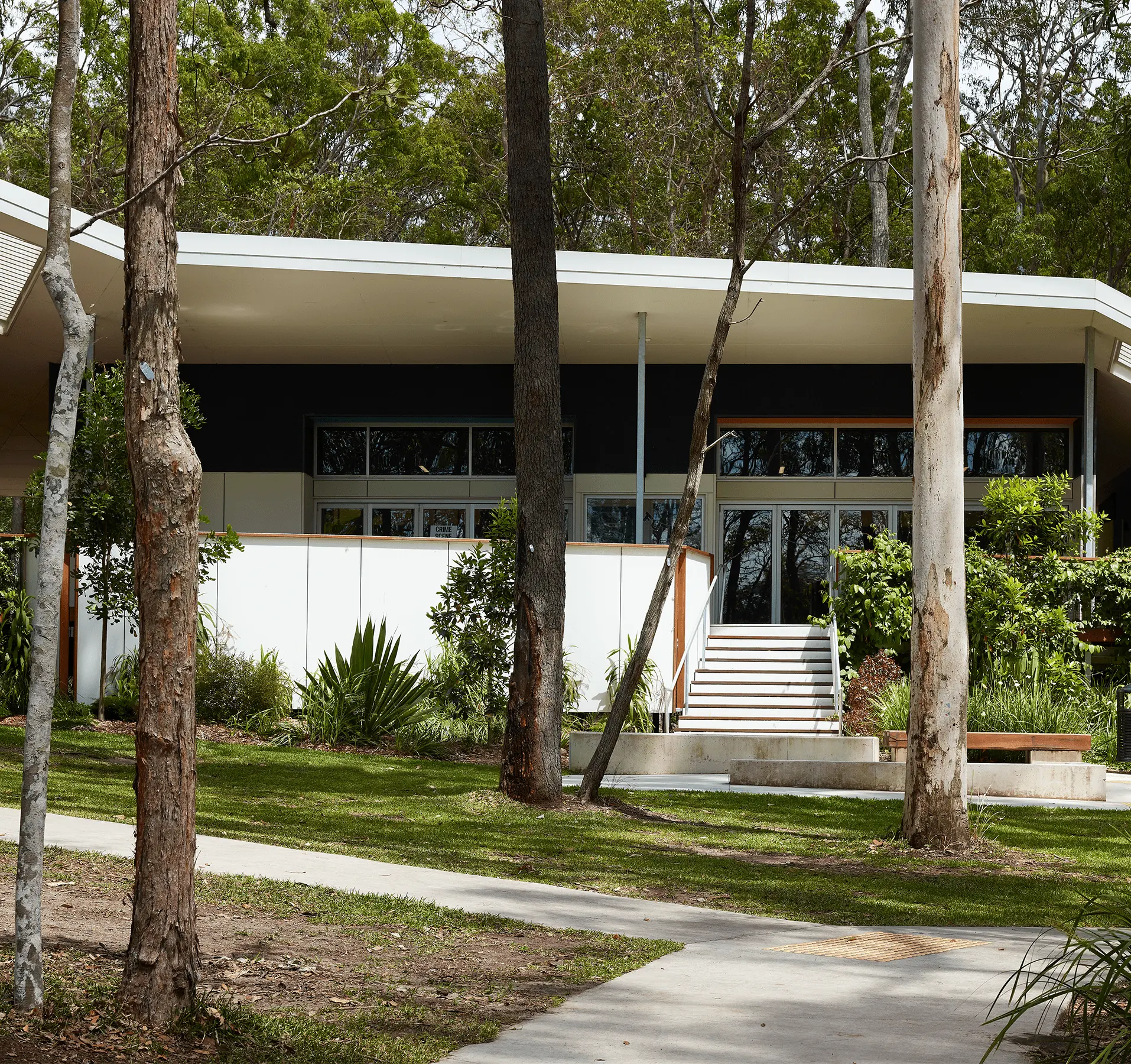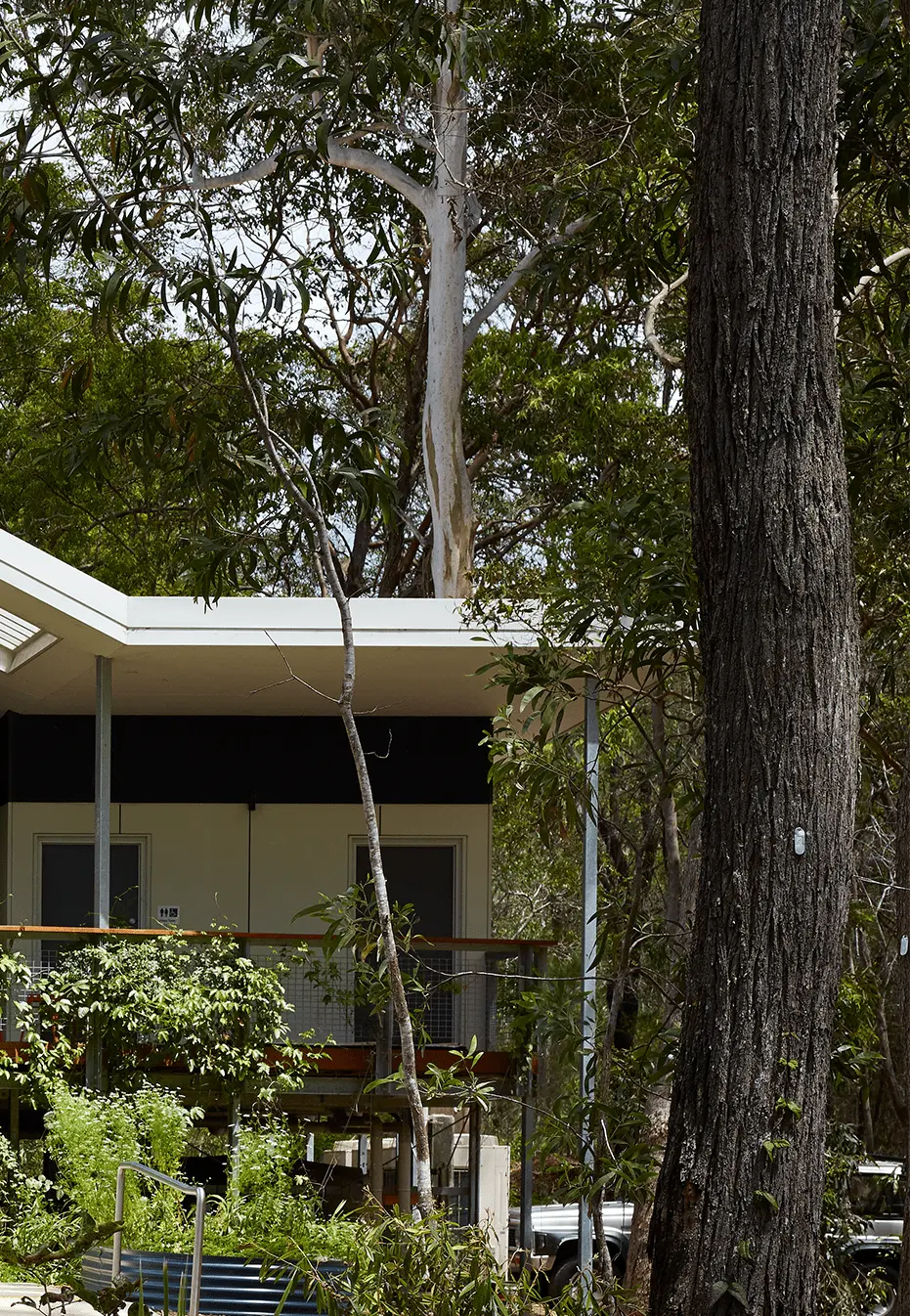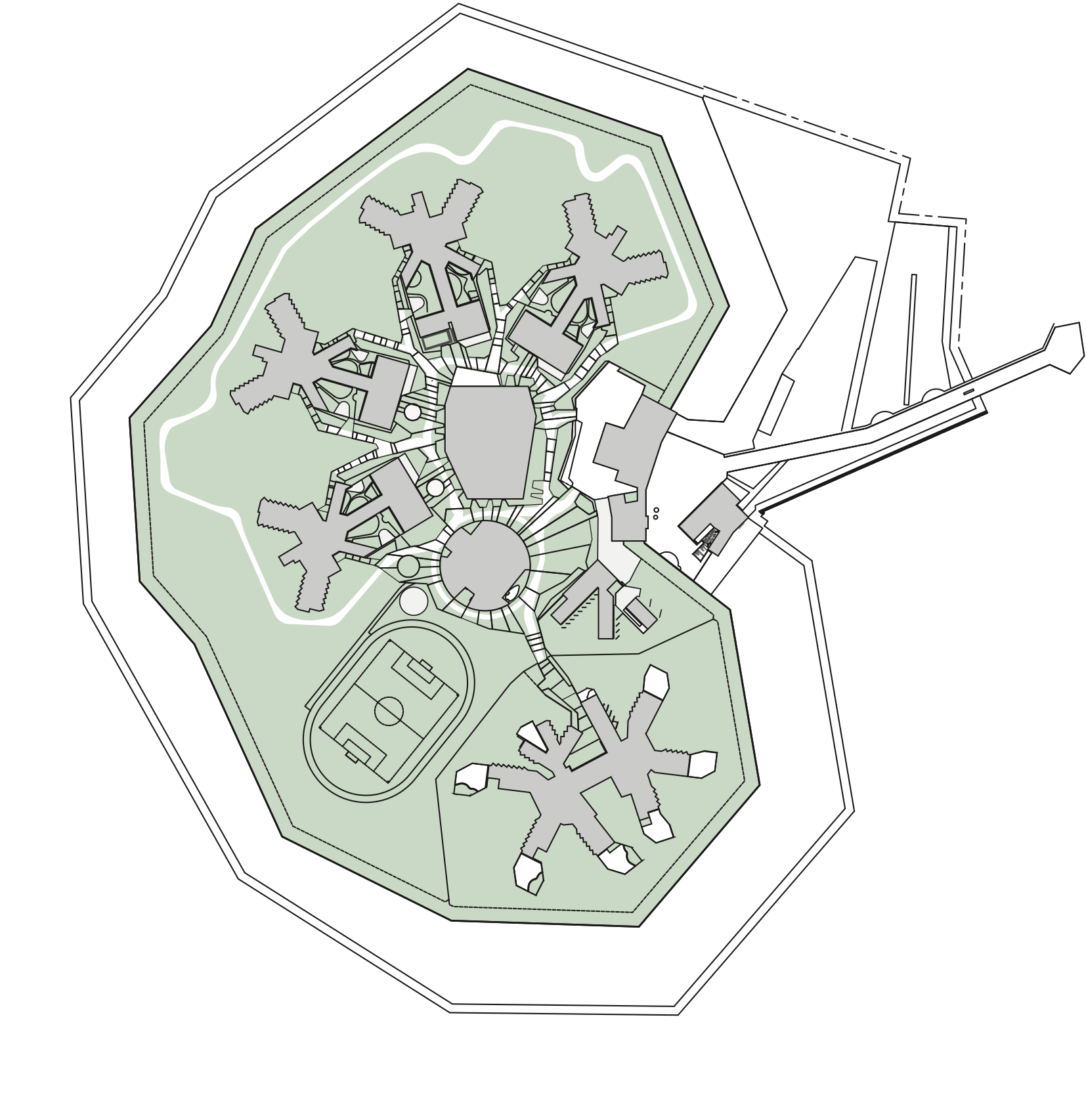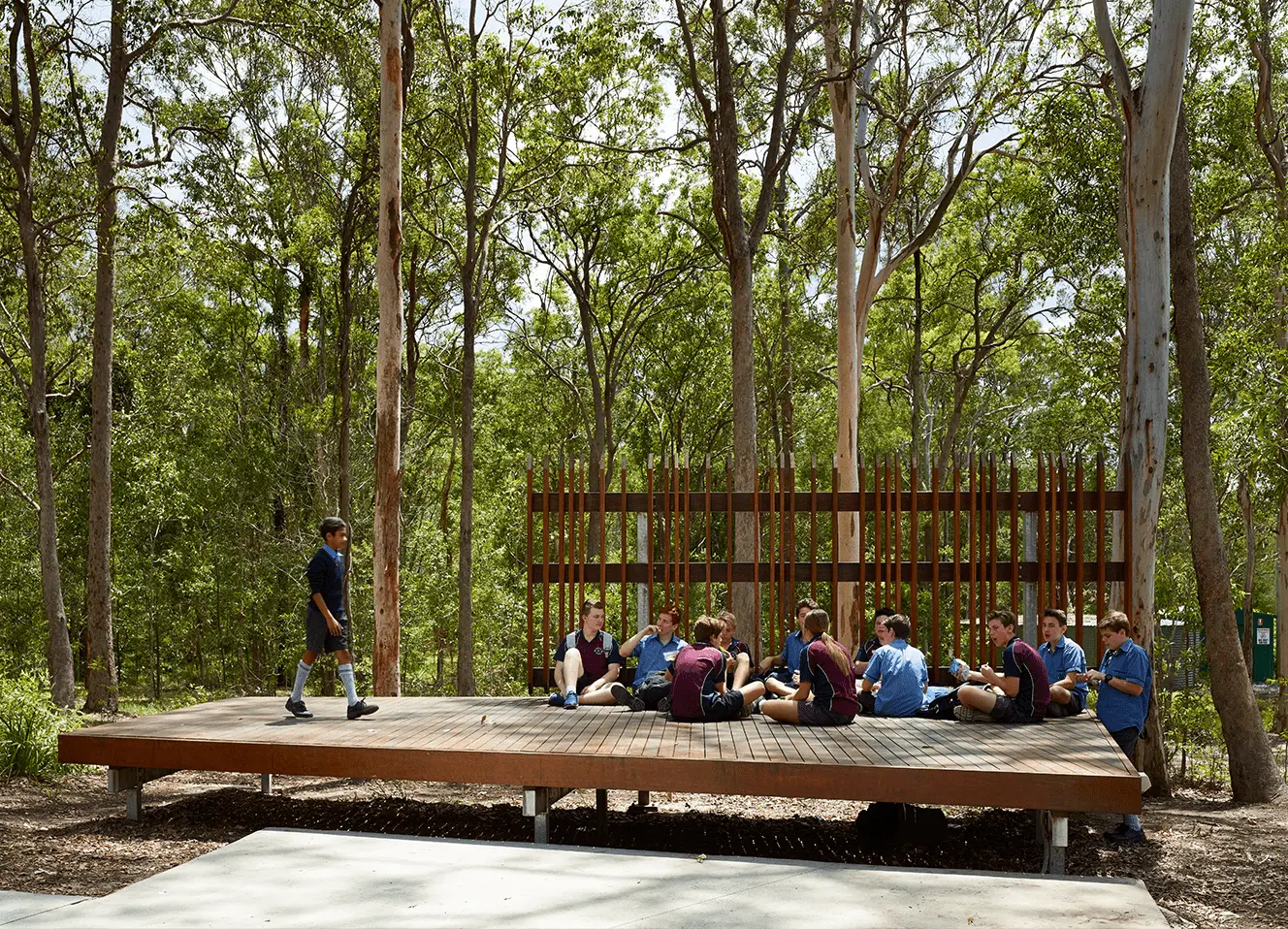











Kimberley College Year 7 Flexible Learning Area
Built to accommodate Year Seven students as part of the state government initiative to migrate year seven into high school, the Kimberley College Flexible Learning Area has been designed to foster the College’s progressive teaching philosophy that learning is achieved through curriculum teaching, student collaboration and engagement with the surrounding environment.
The Learning Area’s design reflects this philosophy by combining adaptable indoor learning spaces with flexible outdoor spaces, large enough for full class groups, giving students many varied opportunities for interaction, performance, collaboration and connection to nature.
Located in natural Eucalypt bushland, selective clearing was required for the new build to minimise ecological impact. The remaining trees form the framework for the external landscape spaces. The large Eucalypts that needed to be felled were site sawn into large timer billets that were used in the landscape as seats. The seats have been arranged to create outdoor classroom areas and social spots for students. Lawn areas were kept to a minimum leaving extensive mulch areas that were replanted with plants indigenous to the site. The only lawn area is centrally located and addresses an outdoor timber stage which is used by students for performance sand presentations.
Stage A works included the refurbishment and extension of an existing two-storey classroom block as well as the construction of a new covered walkway through the centre of the school.
PROCESS
The building’s architecture reflects this philosophy by combining adaptable indoor learning spaces with flexible outdoor spaces, large enough for full class groups, giving students many varied opportunities for interaction, performance, collaboration and connection to nature. The Learning Area includes four flexible double learning areas, associated teachers’ offices, small group rooms, storage areas and ancillary workrooms.
METHODOLOGY
Located in natural bushland with selective clearing required for the new build, Guymer Bailey Architects employed a variety of sustainability principles to create a stimulating learning environment with minimal ecological impact. Built from locally sourced materials where possible, the Learning Area features rainwater harvesting, on-site sewer treatment, high performance glazing, a weather station and building management system, and zoned energy efficient lighting with movement sensor operation.
AWARDS
2016
Australian Institute of Architects
Education Category – Queensland Regional Commendation
TRADITIONAL CUSTODIANS OF THE LAND
The Yuggera People
COMPLETION
2015
LOCATION
Carbrook, Queensland
CLIENT
Kimberley College
PROJECT CONTACT
PHOTOGRAPHY
Scott Burrows Photography, Phil Hargreaves
VALUE OUTCOMES
“GB-A were an absolute pleasure to work with. The team on site and in the office never cut corners and were committed to delivering a very high quality project.”
Jim Spainard, Golburn Enterprise


Designing for a sustainable future is a core part of our organisational philosophy. Drawing on the knowledge from our Greenstar accredited team members and specialist consultants in environmentally sustainable design, we ensure our project teams integrate creativity with scientific rigour, to create designs that are conscientious of the natural environment and local ecology. Designing for a sustainable future is a core part of our organisational philosophy.
PRINCIPLES OF PASSION
During the design process, our project team not only considers the physical context of the designs but also examines the social and cultural context. Through every design, we look for ways to inspire positive attitudes, behaviours and emotional responses in people to encourage the responsible use of resources, increase cooperation among occupants, and communicate the values of society and cultural diversity.
Designing for a sustainable future is a core part of our organisational philosophy. Drawing on the knowledge from our Greenstar accredited team members and specialist consultants in environmentally sustainable design, we ensure our project teams integrate creativity with scientific rigour, to create designs that are conscientious of the natural environment and local ecology.


We design built environments from a holistic, sustainable perspective: each project reconciles ecological and social impacts within the current economic climate. We holistically evaluate environmental, cultural and financial sustainability in every task we undertake.
